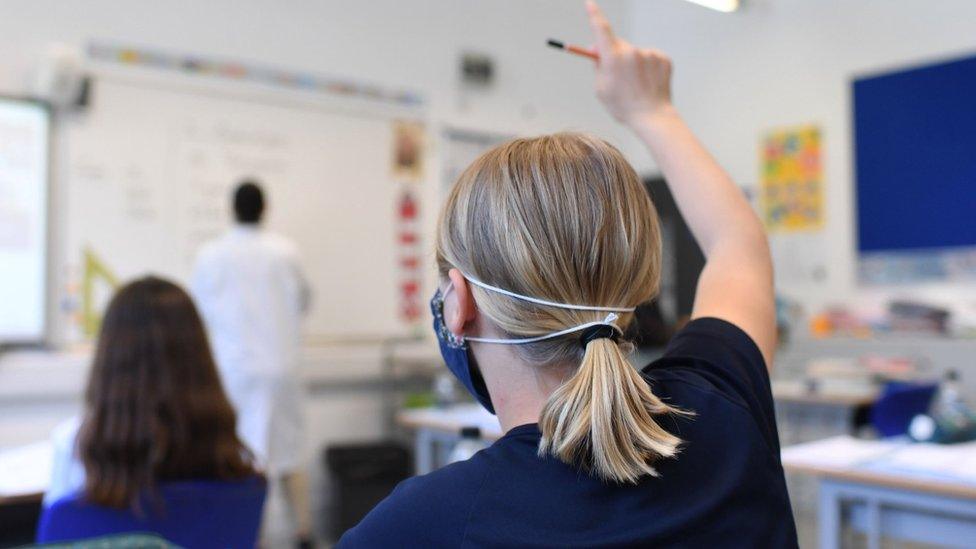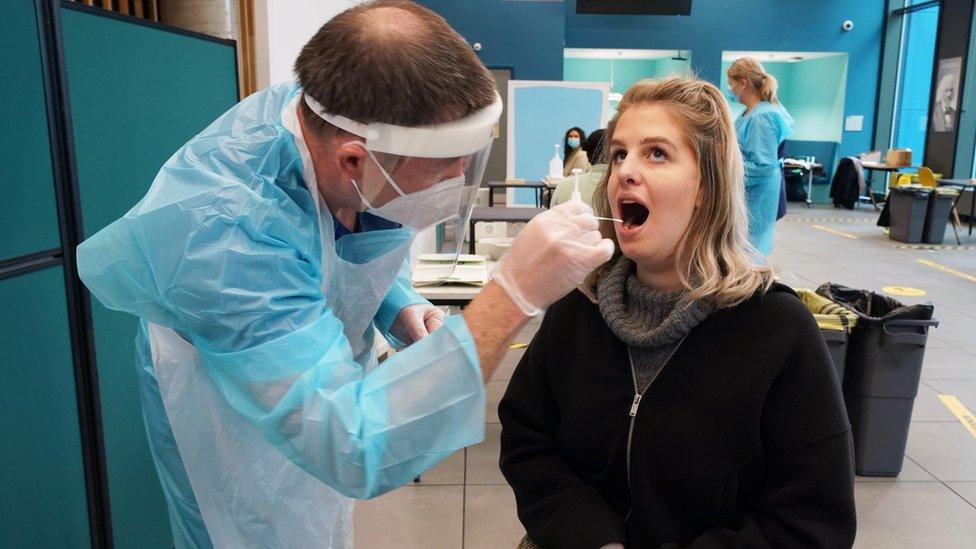'Game changer' Covid tests for secondary schools in January
- Published
- comments

Mass Covid testing of secondary-school pupils in England is to be greatly increased in January, in an attempt to reduce the numbers being sent home.
Any students who have been in contact with a positive case will be offered seven days of daily testing, the Department for Education has announced.
Teachers can have weekly Covid tests.
Education Secretary Gavin Williamson said this "huge expansion" of testing would be a "milestone moment" in keeping schools open.
Hamid Patel, head of an academy trust that had piloted such testing, said it had been a "game-changer".
Pupils missing school
The announcement comes as attendance figures show more pupils out of school because of Covid outbreaks - with 15% missing last week on average across England and 23% in the West Midlands.
Absences have been higher in secondary school, with 20% of pupils missing school last week.
As infection rates have risen many schools have struggled to keep going with so many pupils and staff having to isolate - and mass testing is an attempt to break this cycle.
But the National Education Union said it was "ridiculous" for schools to be told to prepare for testing in the last few days of term with "almost zero notice".
BBC Health Correspondent Laura Foster explains what schools are doing to keep pupils safe
Instead union co-leader Kevin Courtney called for the first week of next term to be moved online - allowing schools time to prepare for testing.
The announcement by the education secretary will make rapid Covid testing available to all secondary schools and colleges in England from the first week in January.
It will be used to test pupils who have been near a positive case and where otherwise a whole bubble, class or year group might have been sent home.
Secondary school teachers will be offered a test each week - and daily tests if they have had a case in their class, in a bid to reduce the disruption from staff having to isolate.
The tests will be optional and require the consent of parents - and testing in primary schools could begin later in the term, said the Department for Education.
Staff for testing
The aim is to improve attendance and to reduce the numbers having to go home, by identifying and isolating those who are infected, and allowing those who do not have the virus to stay in school.
Although 15% of pupils were out of school last week, the latest figures show 0.2% of pupils were confirmed Covid cases.

University students had mass Covid testing ahead of the Christmas break
Mass testing is also designed to stop the virus being spread by those who are infected but have no symptoms.
But Paul Whiteman, leader of the National Association of Head Teachers, said providing testing kits without trained staff to use them meant the government was in "danger of snatching defeat from the jaws of victory".
He said expecting school staff to run the tests would be "deeply flawed".
There have been pilots for school Covid testing - including schools run by the Star academies trust - and the trust's chief executive Hamid Patel said "the benefits have been tremendous".
"Attendance has improved as fewer close contacts have been required to self-isolate. Parents who may have been wavering have gained confidence to send their children to school, and staff have been reassured by the availability of testing," said Mr Patel.

TESTING: How do I get a virus test?
YOUR QUESTIONS: We answer your queries
TEST AND TRACE: How does it work?
